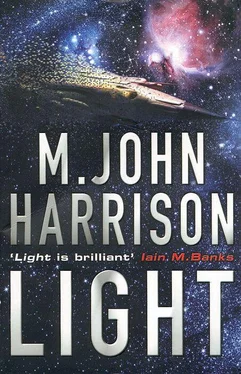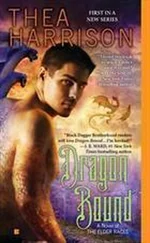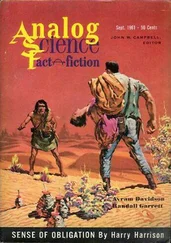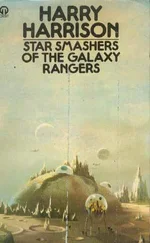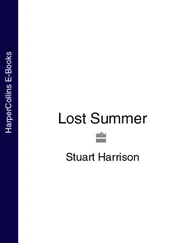Kearney put his hand out to the door. It swung inward, as if in response. Kearney stepped back suddenly.
'Jesus!' he said. 'Jesus!'
For a moment he had thought he saw a face peering round the door at him. It was smeared with streetlight, lower than you would expect to see a face, as if quite a young child had been sent to answer his knock.
Inside, nothing had changed. Nothing had changed since the 1970s, and nothing ever would. The walls were papered a yellowish colour like the soles of feet. Low wattage bulbs on timers allowed you twenty seconds of light before they plunged the stairs back into darkness. There was a smell of gas outside the bathroom, stale boiled food from the second floor rooms. Then aniseed everywhere, coating the membranes of the nose. Near the top of the stairwell a skylight let in the angry orange glare of the London night.
Valentine Sprake lay under a wash of fluorescent light, inside a chalk circle drawn on the bare floorboards of one of the upper rooms. He was sprawled up against an armchair, his head thrown back and to one side, as if he was at that moment being shot. He was naked, and he seemed to have covered himself with some sort of oil. It glistened in the sparse ginger hair between his legs. His mouth had fallen open, and the expression on his face was at once pained and restful. He was dead. His sister Alice sat on a broken sofa outside the circle, her legs out in front of her. Kearney remembered her in adolescence, slow-moving and vague. She had grown into a tall woman of thirty or so, with black hair, very white skin, and a faint downy moustache. Her skirt was drawn up to reveal white, fleshy thighs, and she was staring across Sprake's head at a picture on the opposite wall. From this strange cheap piece of religious art, a Gethsemane rendered stereoscopically in greens and bluish greys, the face and upper body of Christ yearned out into the room in a wrenched but determined gesture of embrace.
'Alice?' said Kearney.
Alice Sprake made a noise like, 'Yoiy. Yoiy yoiy.'
Kearney held his hand over his mouth and went a little further into the room.
'Alice, what happened here?'
She stared at him blankly; then down at herself; then back up at the picture on the wall. She began to masturbate absent-mindedly, working her fingers into her groin.
'Christ,' said Kearney.
He took another look at Sprake, Sprake was clutching an old electric kettle in one hand and a pamphlet edition of Yeats's Hodos Chameleontos in the other. A moment before, perhaps, he had been holding them up with his arms outspread in the hieratic gesture of a figure on a Tarot card. The floor in front of him was littered with objects that seemed to have fallen out of his lap as he died. Seashells, the skull of a small mammal: Serbian gypsy ornaments which had belonged to his mother. There was a feeling that something else was going to happen in the room. Despite the finality of what had already taken place, something else could easily happen.
Alice Sprake said: 'He was good boy.'
She groaned loudly. The broken springs of the sofa creaked and were silent. After a moment she got to her feet and smoothed her skirt down over her thighs. She was six feet tall, Kearney thought, perhaps more. Her great size had a calming effect on him, and she seemed aware of that. She smelled powerfully of sex.
'I will see to this, Mikey,' she said. 'But you must go.'
'I came because I needed his help.'
The idea seemed to give her no satisfaction.
'It is your fault that he is like this. Ever since he met you he has been mad. He was going to do wonderful things with his life.'
Kearney stared at her.
'Sprake?' he said in disbelief. 'Are you talking about Sprake?' He started to laugh. 'The day we met he was a fuck-up in a railway carriage. He did tattoos on himself with a Bic pen. '
Alice Sprake drew herself up.
'He was one of the five most powerful magicians in London,' she said simply. Then she added: 'I know what you are afraid of. If you don't go now I will send it after you.'
'No!' said Kearney.
He had no idea what she might be able to do. He stared panickily from her to the dead man, then ran out of the room, down the stairs and into the street.
Anna was asleep when he let himself back into the flat. She had wound herself in the duvet so that only the top of her head showed, and there were new notes everywhere. Other people's problems are their own, she had tried to remind herself: You aren't responsible for other people's problems.
Kearney went quietly into the back room and began to empty the chest of drawers, stuffing clothes, books, packs of cards and personal items into his Marin courier bag in the dark. The room looked out on to the central well of the block. Kearney hadn't been in there long when he began to hear voices echoing up from one of the lower floors. It sounded like a man and a woman arguing, but he couldn't make out any words, only a feeling of loss and threat. He got up off his knees and drew the curtains. The voices seeped in anyway. When he had what he wanted, he tried to zip up the bag. The zip caught. He looked down. The bag and everything in it was covered in a thick soft even layer of dust. This image gave him such a sense of his life draining away that he was filled with terror again. Anna woke up in the other room.
'Michael?' she said. 'Is that you? That's you isn't it?'
'Go to sleep,' Kearney advised her. 'I just came for some things.'
There was a pause while she assimilated this. Then she said:
'I'll make you a cup of tea. I was just going to make tea but I fell asleep. I was so exhausted I just fell asleep.'
'There's no need to do that,' he said.
He heard the bed creak as she got up. She came and leaned in the doorway in her long cotton nightdress, yawning and rubbing her face. 'What are you doing?' she said. She must have smelt the vomit on the front of his jacket, because she said: 'Have you been ill?' She switched the light on suddenly. Kearney made a futile gesture with the bag in his hand. They stood there blinking at each other.
'You're leaving.'
'Anna,' Kearney said, 'it's for the best.'
'How can you bloody say that!' she shouted. 'How can you bloody say it's for the best?'
Kearney began to speak, then shrugged.
'I thought you were going to stay! Yesterday you said this was good, you said it was good.'
'We were fucking, Anna. I said that was good.'
'I know. I know. It was good.'
'I said it was good fucking you, that's all,' he said. 'That was all I meant.'
She slid down in the doorway and sat with her knees drawn up.
'You let me feel as if you were going to stay.'
'You did that yourself,' Kearney tried to persuade her.
She stared up at him angrily. 'You wanted it too,' she insisted. 'You practically said as much to me.' She sniffed, wiped her eyes with the back of her hand. 'Oh well,' she said. 'Men are always so stupid and frightened.' She shivered suddenly. 'Is it cold in here? I'm awake now anyway. At least have some tea. It won't take a minute.'
It took longer. Anna fussed about. She wondered if there was enough milk. She began the washing up, then abandoned it. She left Kearney to finish the tea while she went into the bathroom and ran the taps. After that he heard her rooting about somewhere else in the flat. Drawers opened and closed. 'I saw Tim the other day,' she called. This was so transparent Kearney didn't bother to answer. 'He remembered you.' Kearney stood in the kitchen, staring at the things on the shelves and drinking the weak Earl Grey he had made. He kept hold of the courier bag, feeling that if he put it down he would weaken his position. Every so often a wave of anxiety licked over him, starting somewhere deep in the brainstem, as if some very old part of him could detect the Shrander long before Kearney himself heard or saw it.
Читать дальше
